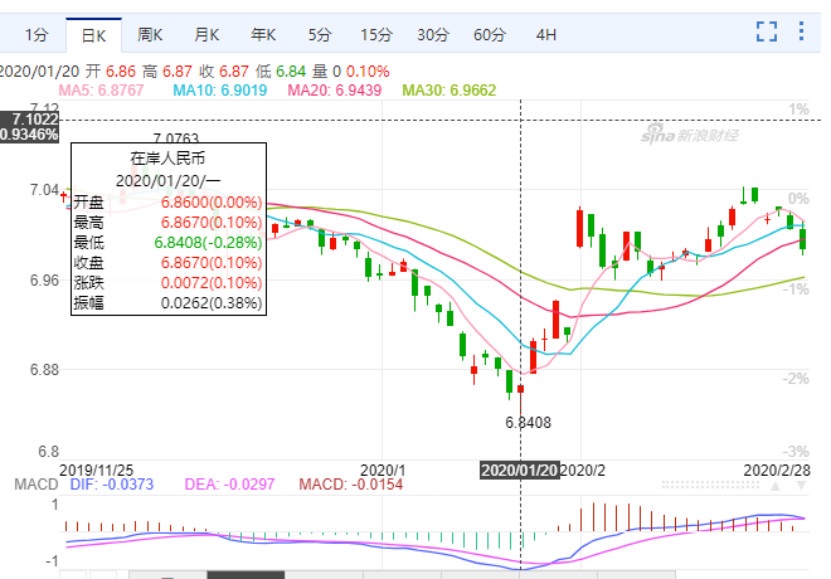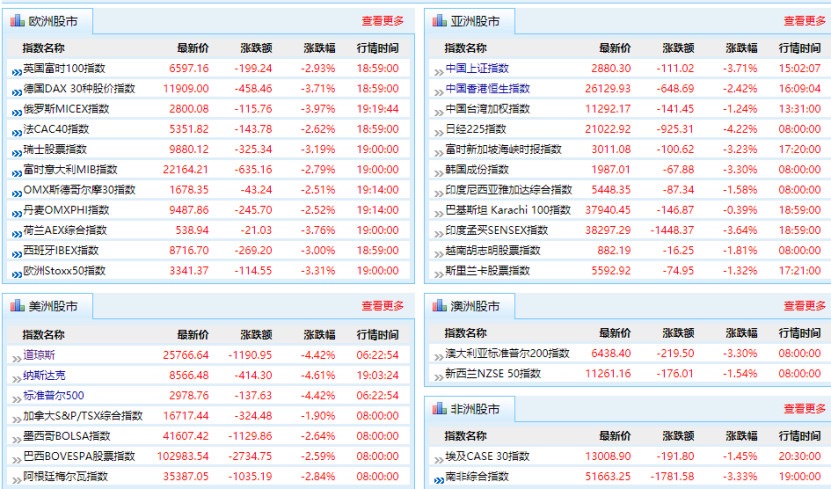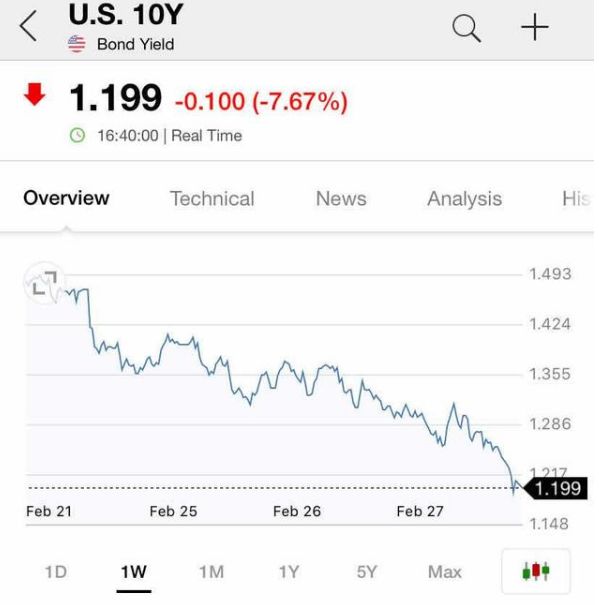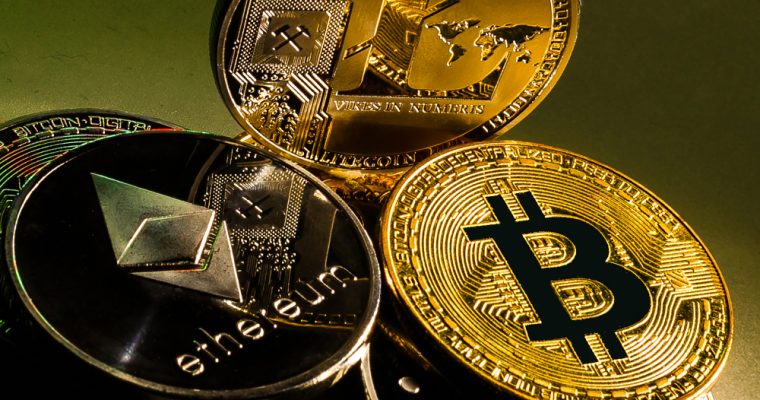Faced with the crisis in developed countries, Bitcoin's risk aversion ability breaks down
Wen | Interlink Pulse · Yuan Shang
Bitcoin's hedging ability is broken.
From the beginning of Bitcoin in 2009, to 2019, after 10 years of development, although Bitcoin has not yet realized Satoshi's ideal-a peer-to-peer electronic cash system, Bitcoin has trained another magic- Hedging tools, especially in the past year, have been tried and tested.
However, recently, the financial turmoil in western countries, the traditional safe-haven instrument gold price has risen steadily, but the price of bitcoin and gold have deviated. From February 24 to February 28, the maximum range of Bitcoin fell 13.6%.
- In order to comply with the new central bank regulations, Fabric-based blockchain financial projects face large-scale transformation
- FCoin latest progress: Zhang Jian announces wallet address, defenders confront Zhang Jian's family, Hangzhou police will not file a case
- Babbitt First | Legal Regulations on Client Asset Protection of Crypto Asset Exchanges: From the Perspective of Related Rules in Canada and Hong Kong
Why is Bitcoin doing so badly?
Bitcoin crisis in developing countries
Last year, the admission of institutional investors such as Fidelity, Goldman Sachs, etc., part of the transfer of Bitcoin rights, from amateur to professional. And professional institutions have gradually developed the “currency expectations” of Bitcoin “digital gold” into “investment consensus”.
Bitcoin has indeed shown a golden hedging function during many crises.
In the Venezuelan coup in April last year, bitcoin advanced rapidly from April 30 to May 30, an increase of 66%;
In August last year, the Argentine Peso suffered a cliff-like depreciation. In just 12 days, Bitcoin rose by 25%;
Earlier this year, the United States killed Iranian general Suleimani. From the bombing on January 3 to January 19, Bitcoin rose by 30%;
The epidemic raged in China from the end of January to mid-February, and Bitcoin rose 27%.
…

(Tabulation: interlink pulse)
The scope of the above-mentioned incidents are all regional developing countries. In addition, there are some commonalities:
1. The crisis caused the devaluation of regional currencies. The rapid depreciation of the Argentine Peso is self-evident. The national currencies of Venezuela and Iran have all depreciated sharply during the crisis. In this outbreak, the yuan has also depreciated.
Chart: USD / RMB daily K-line

(The RMB depreciated against the US dollar on January 20)
2. All the above countries have capital control countries, and currencies cannot be freely converted. This means that when currencies depreciate, it is difficult to quickly exchange other currencies, so cryptocurrencies act as a "currency exchange intermediary".
When the crisis occurred, Iran, Argentina, and Venezuela all experienced a large premium on Bitcoin. At the beginning of the year, the price of bitcoin in the Iranian market was as high as US $ 20,000, and the premium rate was twice as high. This has also pushed up the price of Bitcoin.
Why Western Markets Make Bitcoin Bad
When China's epidemic situation improved, the epidemic situation began to spread globally and hit Western markets. The western capital markets reacted fiercely. European and American stock markets fell for a week.

However, Bitcoin did not continue to rise, but turned around like the stock market.
One of the important reasons is that European and American investors have more reserves of tools to seek safe havens worldwide. CITIC Securities has noticed that the recent performance of safe-haven assets in overseas markets has been eye-catching. The US dollar index has rebounded since January and is currently at a high level of more than 99. The price of gold has continued to rise while maintaining its strength. It started to descend after the shock. From the performance of the year to date, the US dollar index has risen 3.4% so far, the current price of gold in London has risen 8.3%, and the yield on 10-year US bonds has fallen 123bp.
From the common characteristics of the three types of assets, it can be seen that the rise in overseas risk aversion sentiment since January is the main reason for the rise in the price of safe-haven assets at the same time since the beginning of the year. At the beginning of January this year, the outbreak of conflict between the United States and Iran exacerbated geopolitical risks. At that time, there was a risk aversion of the dollar and gold rising at the same time. However, as the situation in the United States and Iran eased, the risk aversion did not subside. Instead, the shift occurred following the Black Swan incident. Concerns over the impact of the new crown epidemic are the immediate cause of the current risk aversion. Driven by the epidemic, the safe-haven assets including the US dollar, gold and US debt have strengthened.
U.S. dollar and U.S. debt safe-haven instruments are not available in capital-controlled countries.
But any hedging tool has its own real value. For example, when the global economy hits, the US economy cannot be spared, and the US dollar index cannot support it.
The same is true for U.S. Treasuries. When funds rushed into U.S. Treasuries, the U.S. 10-year Treasury yield continued to fall on February 28, once falling below the 1.2% mark to a record low of 1.191%, and the 5-year Treasury yield fell to 1. % For the first time in 2016.

The same is true for gold. As the anchor of the global economy, if the global economy goes wrong, the underlying value of gold will also be affected.
Therefore, whether it is the US dollar, gold, or US debt, there are times when it cannot be sustained. In the past two days, the US dollar index and gold have corrected. Instead, Bitcoin rebounded slightly.
If the global economy continues to deteriorate and traditional safe-haven assets can't carry the demand for safe-haven, will Bitcoin have new opportunities?
This article is the original [Interlink Pulse], the original link: https://www.hulianmaibo.com/posts/info/39314
We will continue to update Blocking; if you have any questions or suggestions, please contact us!
Was this article helpful?
93 out of 132 found this helpful
Related articles
- Take stock of the four "DeFi" projects on Ethereum
- Will quantum computers become the terminators of Bitcoin?
- Cementing Manifesto: Avoid Decentralization Maximization, Cementing Centralization Technology
- FCoin activist reports late at night to block Zhang Jian's relatives, police are counting victims' losses
- 60,000 BCH stolen, BCH rolling checkpoint mechanism causes controversy
- Analysis | From Libra's perspective, how to govern the crypto market
- Participated in more than 100 cases of blockchain application schemes, and the chief engineer of Thunder Chain came to Xin to explain the multi-domain on-chain methodology




